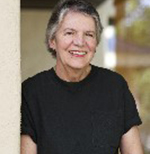We Played in the Sandbox Building Jamestown
The crossing was a voyage that absorbed us.
When we landed our ship
we began another passage.
We saw the savages.
Their walls and longhouses always on hilltops
from which the distance could be seen.
They had platforms along the walls for weapons.
Their longhouses were upright structures
covered with bark.
They stood in rows with storage space
and outside the walls
the fields of corn beans squash.
We built our own barriers on which to post our cannons.
We molded walls.
Inside the walls we shaped block houses
with packed sand.
We marked rows for crops with twigs.
We had a few small stones for animals and a gate
from which we left with our muskets to hunt.
It was simple.
Build forts.
Plant crops.
Establish trade with the Indians.
Who could not thrive?
We built a little church and a glassworks.
We made a few barrels for tar.
The summer was hot.
The winter bitter.
The crops failed.
The animals scattered.
The Indians made war.
We suffered hunger, cold, diseases of the most putrid kind.
The next ship found us Cryeinge owtt
we are starved we are starved.
We were forced to eat horses
Doggs
Catts
Ratts
Myce
Vermin
Bootes or other leather
Starch in our ruffs.
Later ships found the walls of Jamestown tourne downe, the portes open,
the gates from the hinges,
the church ruined and unfrequented,
empty howses…rent up and burnt…¹
They found our sandbox where holes were poked
with twigs for graves.
¹ Percy, George, “Trewe Relacyon,” Governor and Council of Virginia to the Virginia Company of London, July 7, 1610

Diane Glancy is professor emerita at Macalester College. Her latest books are Fort Marion Prisoners and the Trauma of Native Education (creative nonfiction), University of Nebraska Press, 2014, and Report to the Department of the Interior (poetry), University of New Mexico Press. 2015. in 2016-17 Wipf & Stock has published several books including Mary Queen of Bees (novella), The Servitude of Love (short stories) and The Collector of Bodies, Concern for Syria and the Middle East (poems).
